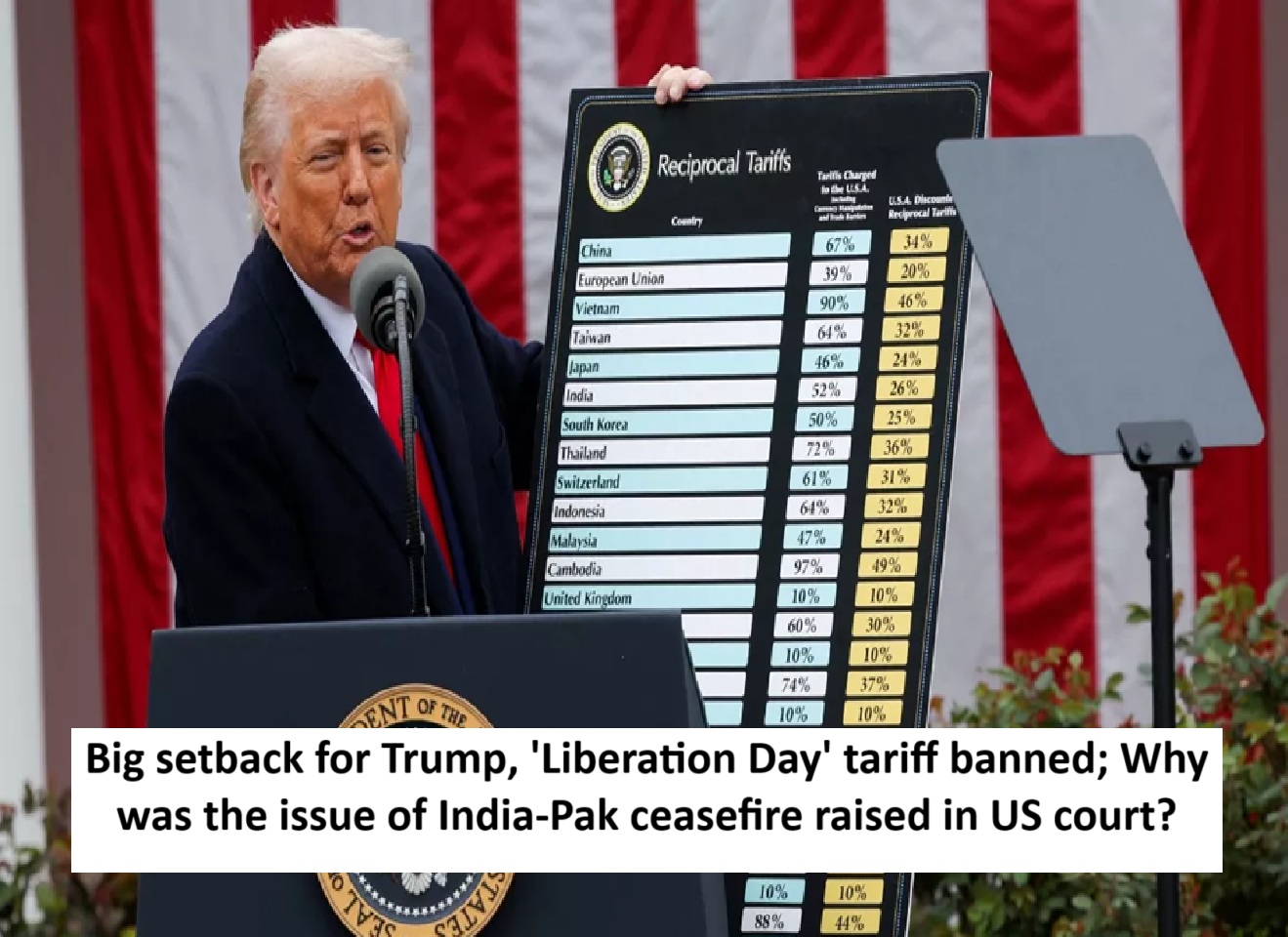
News Topical, Digital Desk : US President Donald Trump has received a big setback from the court. In fact, a federal court in Manhattan, America has banned the 'Liberation Day' tariff imposed by Trump.
While giving its verdict, the court said that the President had abused his powers and had acted against the US Constitution. However, the Trump administration tried to defend the decision taken by the President and urged to retain the tariff.
Trump's tariff power led to ceasefire between India and Pakistan?
The Trump administration argued in court that a legal setback in the case could change the course of the unequal trade conflict with China and end the recent ceasefire between India and Pakistan.
The Trump administration claimed that the president had used his tariff powers to broker a ceasefire between India and Pakistan in early May. Trump administration officials told the court that trade negotiations were ongoing with several countries without regard to tariffs and that the deadline for finalising trade deals was July 7.
The court rejected the arguments
However, the court rejected the arguments put forward by the Trump administration and a three-judge bench of the Court of International Trade said that according to the US Constitution, the right to regulate trade with foreign countries lies only with the US Congress, i.e., the Parliament, and not with the President.
The court also clarified that the matter does not fall under the emergency powers of the President. The court said that the law does not give Trump such unlimited authority to impose tariffs under the International Emergency Economic Powers Act (IEEPA).
What did the judges write in their order?
- The President’s claim to impose tariffs, with no time or scope limits, goes far beyond the authority granted under the law.
- These tariffs are illegal. According to the US Constitution, the right to impose tariffs lies with the Parliament i.e. Congress and not the President.
- Only extraordinary emergencies give the president limited powers, but in Trump's case there was no such legitimate emergency.
What was the argument of the Trump administration?
- In 1971, then-President Richard Nixon had also imposed tariffs under emergency and the court had approved it.
- It is the prerogative of Congress, not the courts, to decide the validity of a Presidential emergency declaration.
- The court rejected the arguments put forward by the Trump administration.
What are Trump tariffs?
- The US commander-in-chief announced tariffs on most of America's trading partners on April 2, with a baseline of 10 percent.
- Applied higher rates to countries with which the US has the largest trade deficits, notably China and the European Union.
- The tariffs on many of these countries were halted a week later.
- The reason behind stopping the tariffs is that these tariffs, aimed at restoring American manufacturing capacity, had caused panic in the American stock market.
Who challenged the decision of the Trump administration?
- A case was filed by a group of small traders.
- The second case was filed by 12 Democratic attorneys general.
- He said that the law IEEPA, which Trump resorted to, does not give him the right to impose tariffs simultaneously across the world.
- His lawyer argued that Trump's alleged emergency was just a figment of his imagination. Trade deficits have been running for decades but they have not created any crisis.
--Advertisement--

 Share
Share



